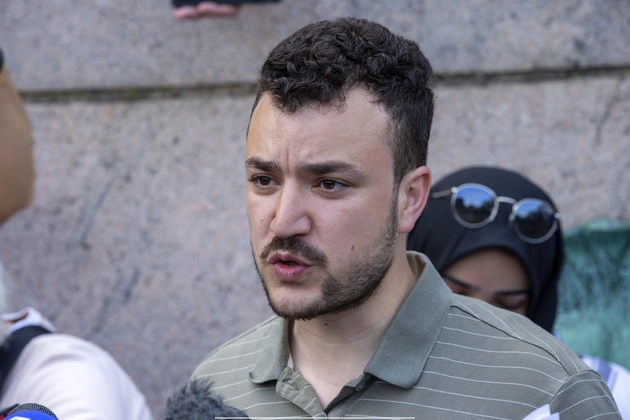
Presidents and Their Limits: A Battle for Birthright Citizenship
Democratic attorneys general are pushing back against President Donald Trump’s executive order seeking to end birthright citizenship in the U.S.
The Legal Challenge
The challenge, led by New Jersey Attorney General Matthew Platkin with California Attorney General Rob Bonta and Massachusetts Attorney General Andrea Campbell, comes just a day after Trump signed the order in a flurry of moves made in the first hours of his return to office.
Trump’s order directs federal agencies to refuse to recognize citizenship for children born in the United States to mothers who are in the country illegally or legally on visas, if the father is not a U.S. citizen or lawful permanent resident. It quickly drew criticism from immigrant rights advocates, who filed a suit in federal court on Monday evening.
Constitutional Concerns
Opponents of Trump’s order argue that the Constitution guarantees the right to citizenship for those born in the U.S. under the 14th Amendment. Platkin told reporters on Tuesday that he is “confident this order is never going to take effect,” calling it “one of the most unprecedented acts undermining the rule of law by a president in our nation’s history.”
“It’s not about disagreeing with him on policy or politics — it’s about standing up for the rule of law,” he told POLITICO in an interview. “I was hopeful that he wouldn’t do things that so egregiously violated the law, but he chose on his first day … to sign an executive order that stripped people of a constitutional right.”
Legal Battles Ahead
Immigration — an issue that Trump campaigned heavily on — will be one of the first legal battles the administration faces. New Jersey, California and Massachusetts are joined by Connecticut; Colorado; Delaware; Hawaii; Maine; Maryland; Michigan; Minnesota; Nevada; New Mexico; New York; North Carolina; Rhode Island; Vermont; Wisconsin; D.C.; and San Francisco in the challenge, which seeks to prevent the order from taking effect. Without intervention, it is set to be in place 30 days after it was signed.
The Democrats raised concerns that hundreds of thousands of children will have uncertain legal status if the order were to take effect, which could cause states to lose out on federal funding for various programs contingent on children’s citizenship and immigration status.
Standing Firm
“If I don’t like something he does, that’s not the test,” Platkin said, noting that he is willing to work with the administration — a sentiment that Democratic New Jersey Gov. Phil Murphy has also shared. “It’s whether what he’s done is lawful and consistent with our Constitution and the laws of this nation.”
“Presidents are powerful, but they are not kings,” he added.
Unity Among Attorneys General
Attorneys general in the states of Illinois, Washington, Arizona and Oregon have also filed suit. They’ve been working for weeks on the case in anticipation of the executive order.
The issue is personal for Illinois Attorney General Kwame Raoul, whose mother emigrated from Haiti to Chicago, where Raoul was born. “I was a birthright baby,” he told POLITICO. “My mother was not yet naturalized at the time of my birth. So, I’m prepared to step forward for all those citizens that might be impacted by any effort to undermine the protection of the citizenship clause of the 14th Amendment.”
Legal Tools in Action
Democratic attorneys general have been bracing for the return of the Trump administration and have vowed to utilize legal tools to push back against his policies. Even before Trump took office again, Platkin last week announced a separate legal effort in anticipation of the administration rolling back access to government health insurance for recipients of the Deferred Action for Childhood Arrival program.
It’s familiar territory for these Democrats, who had what Platkin called an “unprecedented rate of success” with suits they filed during the first Trump administration.
“A lot of these attorney generals are incredible working on their own,” said Bonta. “We’re even stronger when we’re working together.”















